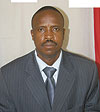Although sometimes skills and qualifications may be used interchangeably, these two words may not necessarily have the same meaning. For better understanding we could look at their definitions. A skill is “an ability and capacity acquired through deliberate, systematic, and sustained effort to smoothly and adaptively carry out complex activities or job functions involving ideas (cognitive skills), things (technical skills), and/or people (interpersonal skills)”.


Although sometimes skills and qualifications may be used interchangeably, these two words may not necessarily have the same meaning.
For better understanding we could look at their definitions. A skill is "an ability and capacity acquired through deliberate, systematic, and sustained effort to smoothly and adaptively carry out complex activities or job functions involving ideas (cognitive skills), things (technical skills), and/or people (interpersonal skills)”.
On the other hand qualification is the capacity, knowledge, that matches or suits an occasion, or makes someone eligible for a duty, office, position, privilege, or status. Qualification denotes fitness for purpose through fulfillment of necessary conditions such as attainment of a certain age, taking of an oath, completion of required schooling or training, or acquisition of a degree or diploma. Qualification does not necessarily imply competence”. (www.businessdictionary.com).
Different dictionaries may give different definitions about skill and qualification, but what is apparent is that qualification does not mean competence!
Something that our systems, (especially our education system and the labour market), in our society today seem not to be paying attention to. On one hand we have an education system that gives paper qualifications, and the labour market that demands paper qualifications regardless of the skills. No wonder therefore, that the minimum qualification for any job position in any organization in Rwanda today is a degree.
No matter where you got it from including buying it from Nasser road or Nkrumah Street in Uganda or from Biryogo in Rwanda! Since having the paper qualification in a name of degree or a masters, one is assured of a good job no matter the skills, people have resorted to acquiring these degrees no matter from where or how!
Those who do not buy these degree certificates from the streets have joined the Candidat libre centers irrespective of their previous school level or where they dropped out from.
It’s not surprising that we have many primary leavers and secondary school drop outs that have joined universities!
For those who have money all they need is to travel to Europe and stay there for a while as they earn a living after 3-4 years they come back as Phd holders! I know someone from one of the leading Universities in Kigali who has been carrying the title of "Dr” for the past four years or so until recently when it was found out that he had a forged doctorate, commonly known as kicupuri! We appreciate his courage because it’s not easy for the person who has been used to be addressed as "Dr”, now to be addressed as Mr! The list of people with fake qualifications is long and I guess as you read this article you could be having someone on mind! The case of former FAWE headmistress is still fresh in our minds.
The challenge that comes with the paper qualification mania is the fact that it has made people to take short cuts in order to acquire these papers. Short cuts in a sense that students are now dropping out of senior two, three or four and join candidat libre centers in order to go to the university quickly! This situation has led to many graduates with paper qualifications without skills!
This scenario also has social and economical implications, because we are having many "qualified” people who have failed to get jobs. As such this has increased unemployment levels.
Whereas I strongly support access to education for all, I am concerned with quality and the by-products of our education system today. There is need for the government to audit paper qualifications that people are carrying around. Again, there is a strong need to put up control mechanisms such that there are no education short cuts.
For example no one should be allowed to sit for senior six national exams without completing O-level. This can be done by making it compulsory for everyone to produce lower level certificates (Primary, O level) before they are allowed to register senior six exams or at the University.
I strongly believe that paper syndrome is killing our labor force. As such employers should stop emphasizing the paper qualifications, but rather strike the balance between the qualifications and skills and abilities. We need to shift from the school of mere knowledge and qualifications to that of understanding, skills and abilities.
The government needs to put mechanisms in place that will track people carrying fake and forged papers, both from within the country and those ones forged from other countries. Public notaries are not effective in this case. Until then I put my case to rest!
The author is an educationist and the founder of Rwanda book development Initiative.


